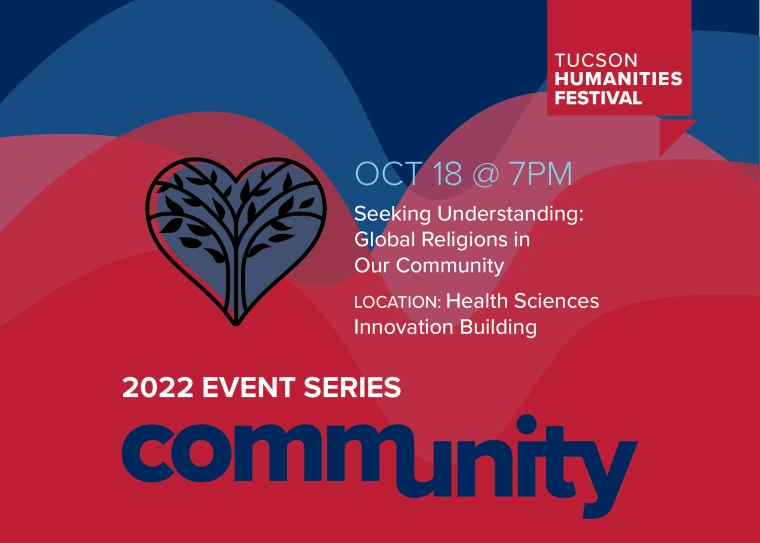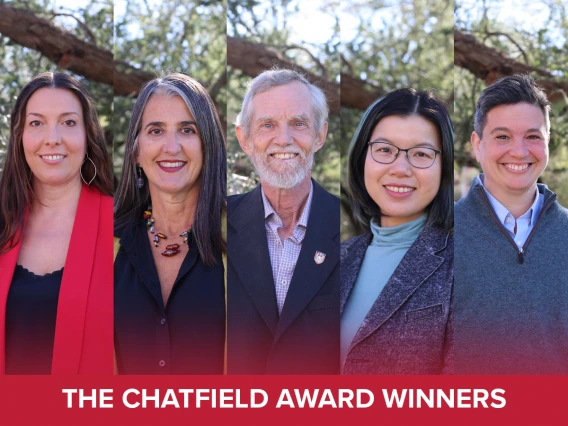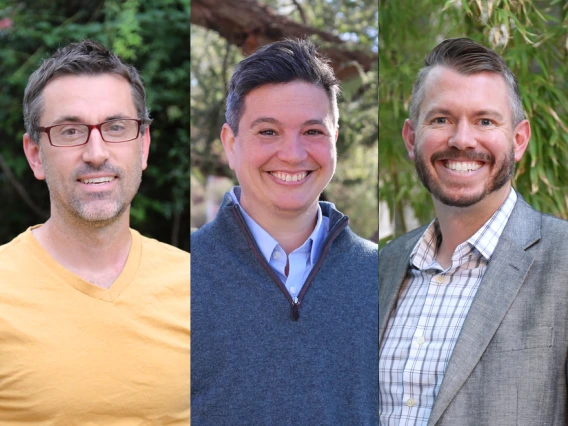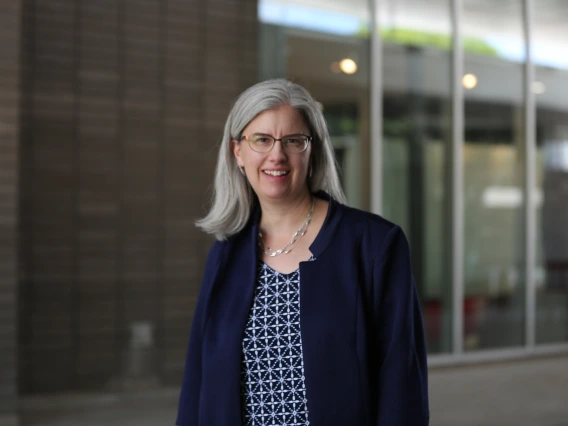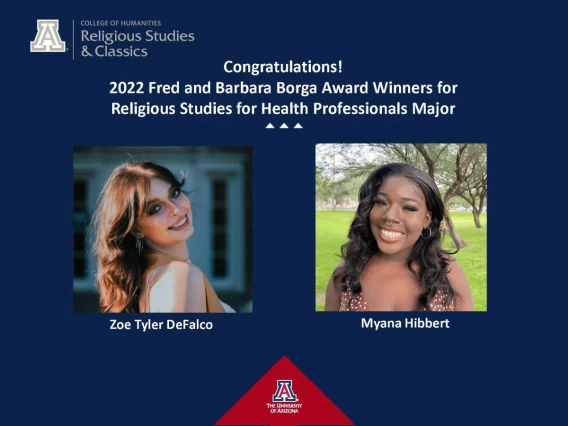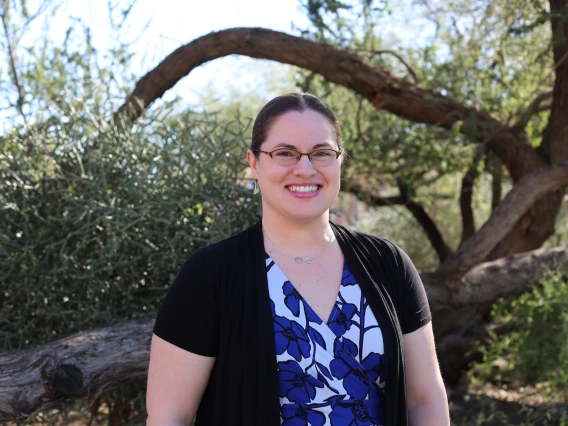Dr. Robert Burns: A Legacy of Kindness, Respect and Understanding
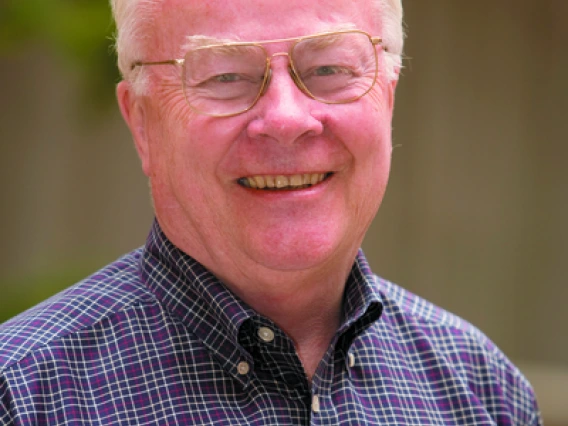
A one-time baseball prospect who followed his calling into the priesthood and then into academia, Dr. Robert A. Burns is remembered as a professor who dedicated 45 years to making the world a better place through education and understanding, with kindness, generosity and a twinkle in his eye.
The founder of the University of Arizona Religious Studies program, which continues his legacy today with a focus on the diversity of world religions, Burns retired from the University of Arizona in 2016. He passed away in June at the age of 87.
Burns was perhaps most widely known for his course on comparative religions, which he taught in large lecture halls nearly every semester, reaching an estimated 20,000 students over the course of his career. An Arizona Daily Star article in 1985 described Burns’ classes as “full to overflowing in recent years, with students ranging in age from 17 to 82.” Two years later, he’d receive the Five Star Faculty award, chosen by undergraduates, one of many awards
Karen Seat, now head of the Department of Religious Studies and Classics, was the second professor hired by Burns and recalls that when she arrived on campus in 2001, “it immediately became apparent that he was an institution here in Southern Arizona. With the public and his students, his driving commitment was helping everyone better understand the diversity of religions here in Tucson and around the globe.”
“I don’t know that there’s ever been anyone at the University who’s had more of a broad and deep impact on the community,” Seat said. “Everywhere I go, if I meet someone who went to U of A, there’s a very good chance they took his course and they remember that as such an important course. He planted that seed in so many people how important it is to study and understand religion. That legacy propels us forward today. He laid such a strong foundation.”
Religious Studies Professor Alex Nava, who was the first hire Burns made, began his academic career as a UA student, one of many who discovered a new world while a student in Burns’ class.
“I was an undergraduate pre-med student and I took one of his classes and it redirected the course of my life and my career,” Nava said. “He introduced me to this exciting world of ideas and beliefs that I didn’t know existed at the time, and I switched to religious studies and philosophy. I went from studying sciences to the humanities and it was due to his influence.”
Burns “built the Religious Studies program out of nothing,” Nava says, cultivating donors when possible for financial support that the university didn’t offer, and making strong connections to various religious communities.
“He was fantastic at outreach to the larger Tucson community. He would do all sorts of lectures with various churches and synagogues around town,” Nava said. “That brought attention to the program and it also dispelled a lot of ideas about religious studies at a secular state university. He made it very clear, even though he was a Catholic priest, that the study of religion was going to have a comparative dimension and academic in nature.”
Burns believed in the value of the humanities and how they can enrich human life and exposed students to important ideas about the variety of religious expressions throughout the world in different cultures, different traditions. “He had the Irish gift for storytelling and a lot of times he would tell stories that illustrated the themes in his lectures, always interspersed with jokes,” Nava said.
“He was the most influential teacher at the University of Arizona of the late 20th century and well into the early 2000s,” Nava said. “The Religious Studies program itself wouldn't be here if not for him. Bob made it possible for us to carry on his legacy and for that I'm profoundly grateful.”
For students who attended the St. Thomas More Catholic Newman Center on campus, Burns was well-known as a Catholic priest. Many would keep in touch after graduating, and he married hundreds of former students over the years, Nava said.
“He was able to enter into people lives at a deeper and more personal than just in the classroom. So many people attested to the impact he had on their lives,” Nava said. “His students were from a wide diversity of backgrounds and people were drawn to him. But some students were startled to learn he was a Catholic priest even after taking one of his classes.”
In an anecdote Burns himself liked to tell, a prime example of his unbiased teaching style, a student who’d just turned in his final assignment suddenly asked Burns if he had a religious preference. Burns calmly replied, “Yeah, a big one. I’m a Catholic priest!” The student’s jaw dropped and he blurted out “No S**t!” in the middle of the lecture hall.
Born in Oak Park, Ill., on Sept. 9, 1934, Burns received his Ph.D. in theology from the University of Iowa in 1971 and that year took a job on the University of Arizona faculty. He founded the Religious Studies program shortly and served as chair until 2011. His publications included four books on Roman Catholicism, Catholic spirituality and comparative religion.
Dr. Ross Schwartzberg, who was a student of Burns in the early 1980s, recalls an honors seminar when Burns spoke about facing a big decision at the end of his senior year of college. The opportunities couldn’t have been more different, between offers at two different law schools and a minor league contract with the Chicago White Sox. But Burns knew what he was meant to do and made a choice that surprised everyone, deciding to become a Dominican priest.
“When he reflected about how he made his decision to become a priest, after considering the option to go into baseball, it made me realize I had good reasons to go into medical school and become a doctor,” Schwartzberg said. “His calling was similar to my calling of becoming a doctor. That was profoundly impactful for me in deciding to go the route I did.”
Numerous collegiate athletes were among the thousands of students Burns taught, in part because of the practicality of being a morning course, but also because Burns and his classes developed such a positive reputation, said Marisol Quiroz, Director of C.A.T.S. Academics and Assistant Athletic Director.
“I learned how student-centered he was, how understanding he was. Anytime we had students in his courses we knew they’d be OK. They’d learn so much and would be talking about what they learned and how they could relate their experiences to what they were learning,” she said. “Once I was able to get students through the door to his office, they would come back feeling so much more confident about themselves as students. He did not let them give up. He made sure they knew they could be successful.”


